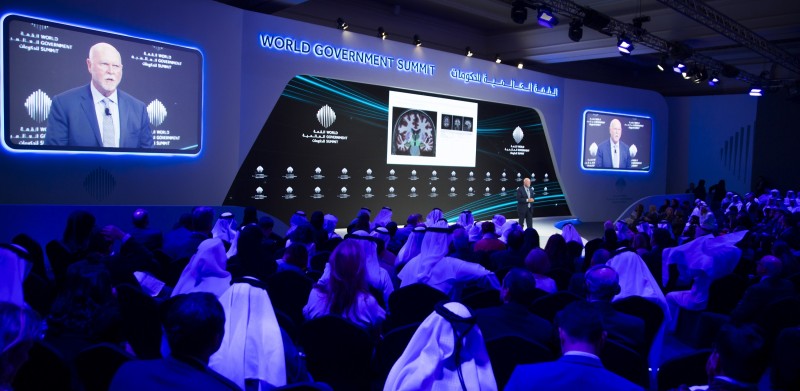
Experts discussed advancements in genome editing and biotechnology, along with their implications on society and healthcare in a series of sessions themed The Future of Health on day one of the sixth World Government Summit (WGS 2018) in Dubai.
“Biotech is the transformative technology of the 21st century. We are not just understanding our genome, we are editing it. For the first time, we are faced with science fiction-like scenarios,” said Ellen Jorgensen, co-founder and president of Biotech Without Borders, a nonprofit organisation dedicated to promoting citizen science and access to biotechnology.
“Over the last summer, the first experiment was conducted to edit a human embryo, and this opened a can of worms,” said Jorgensen. She explained that people started questioning how this technology should be regulated, who should get access to it and a host of other concerns.
As a member of the biohacking movement that aims to encourage individuals and smaller organisations to study biology using the same methods as traditional research institutions, Jorgensen advocates democratising biotechnology at the local level through community laboratories that not only teach the technical aspects of the science but also explain how to contextualise it.
The second session hosted renowned science journalist Jennifer Kahn who discussed advancements in Clustered Regularly Interspaced Short Palindromic Repeats (CRISPR), a genome-editing technology that enables researchers to permanently modify genes in living cells and potentially correct mutations in order to treat genetic causes of disease.
Kahn said, “Before CRISPR, gene editing was very messy and there was no guarantee that the edited gene would end up in the right place. Also, the CRISPR revolution is able to work on the genomes of any animal and any cell type, be it the kidney or heart. CRISPR also changed how many genes we could edit at once.”
While the full impact of CRISPR will likely be felt in another five to ten years, the technology has already shown promise in gene therapy, understanding complex disease and advanced drug development, added Kahn.
Advancements in biotechnology have also significantly impacted healthcare, particularly in preventative medicine, according to the third speaker, Craig Venter, Co-Founder, Chairman and Chief Executive Officer of Human Longevity, Inc. (HLI), a genomics-based health intelligence company focused on understanding how to prolong healthy human life.

“The two biggest reasons why people past the age of 50 don’t live past 74 are heart disease and cancer. In modern medicine, you only go to get yourself checked if you show symptoms,” said Venter, but added that an estimated five percent of people have tumors that they are not aware of and would only be alerted to once they metastasize or grow big enough.
He explained that HLI has new and advanced techniques for early detection. More importantly, the company can predict diseases through genome reading and advanced detection algorithms. “The new preventive medicine paradigm is turning healthcare on its head,” added Venter.
Under the patronage of Sheikh Mohammed bin Rashid Al Maktoum, vice President and prime minister of the UAE and ruler of Dubai, the World Government Summit 2018 runs from February 11 to 13 at the Madinat Jumeirah in Dubai. The event convenes more than 4,000 participants from 140 countries, including heads of state and governments, as well as top-tier representatives of 16 international organisations.





